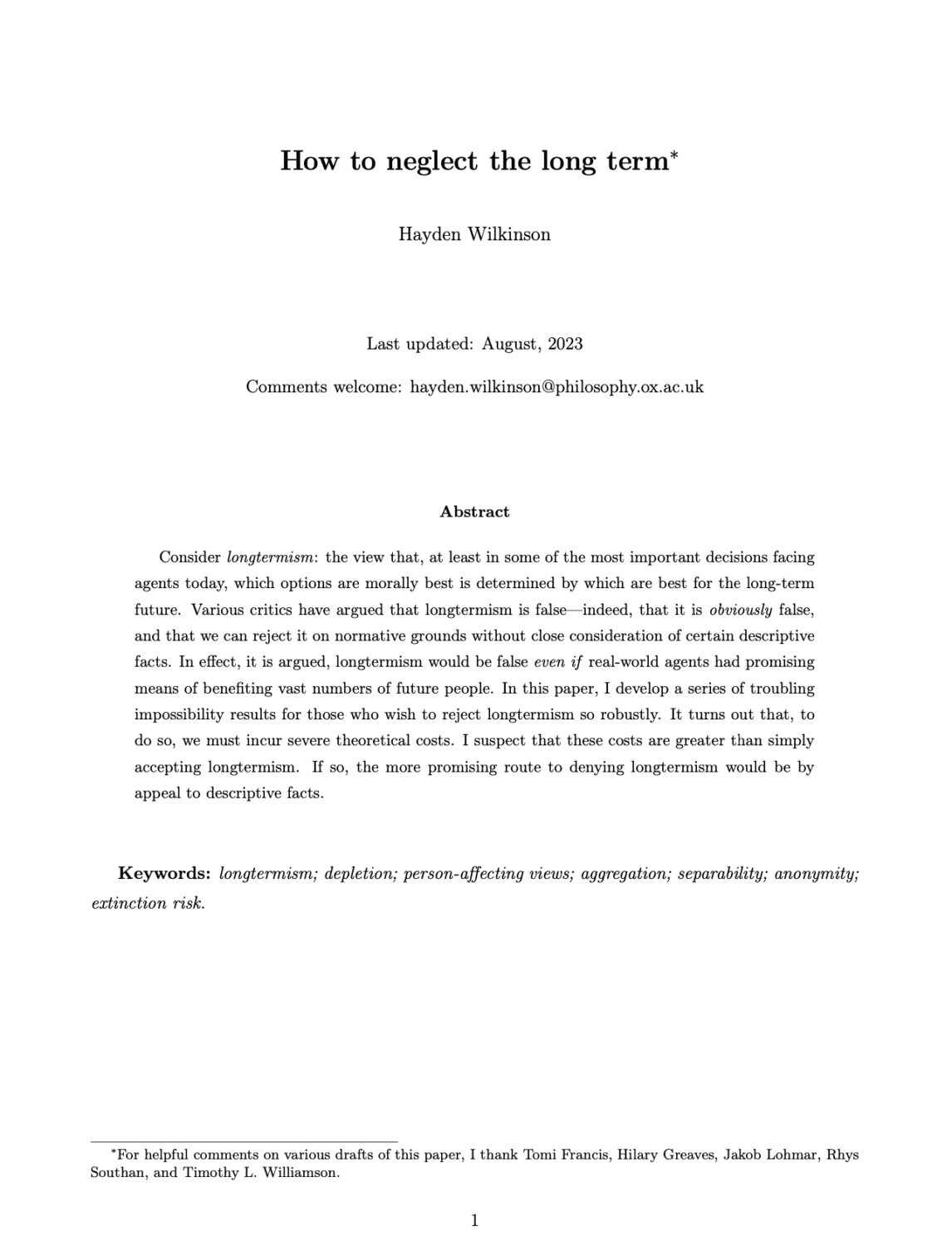How to neglect the long term
Hayden Wilkinson (Global Priorities Institute, University of Oxford)
GPI Working Paper No. 11-2023
Consider longtermism: the view that, at least in some of the most important decisions facing agents today, which options are morally best is determined by which are best for the long-term future. Various critics have argued that longtermism is false—indeed, that it is obviously false, and that we can reject it on normative grounds without close consideration of certain descriptive facts. In effect, it is argued, longtermism would be false even if real-world agents had promising means of benefiting vast numbers of future people. In this paper, I develop a series of troubling impossibility results for those who wish to reject longtermism so robustly. It turns out that, to do so, we must incur severe theoretical costs. I suspect that these costs are greater than simply accepting longtermism. If so, the more promising route to denying longtermism would be by appeal to descriptive facts.
Other working papers
Existential risks from a Thomist Christian perspective – Stefan Riedener (University of Zurich)
Let’s say with Nick Bostrom that an ‘existential risk’ (or ‘x-risk’) is a risk that ‘threatens the premature extinction of Earth-originating intelligent life or the permanent and drastic destruction of its potential for desirable future development’ (2013, 15). There are a number of such risks: nuclear wars, developments in biotechnology or artificial intelligence, climate change, pandemics, supervolcanos, asteroids, and so on (see e.g. Bostrom and Ćirković 2008). …
The asymmetry, uncertainty, and the long term – Teruji Thomas (Global Priorities Institute, Oxford University)
The Asymmetry is the view in population ethics that, while we ought to avoid creating additional bad lives, there is no requirement to create additional good ones. The question is how to embed this view in a complete normative theory, and in particular one that treats uncertainty in a plausible way. After reviewing…
Exceeding expectations: stochastic dominance as a general decision theory – Christian Tarsney (Global Priorities Institute, Oxford University)
The principle that rational agents should maximize expected utility or choiceworthiness is intuitively plausible in many ordinary cases of decision-making under uncertainty. But it is less plausible in cases of extreme, low-probability risk (like Pascal’s Mugging), and intolerably paradoxical in cases like the St. Petersburg and Pasadena games. In this paper I show that, under certain conditions, stochastic dominance reasoning can capture most of the plausible implications of expectational reasoning while avoiding most of its pitfalls…

